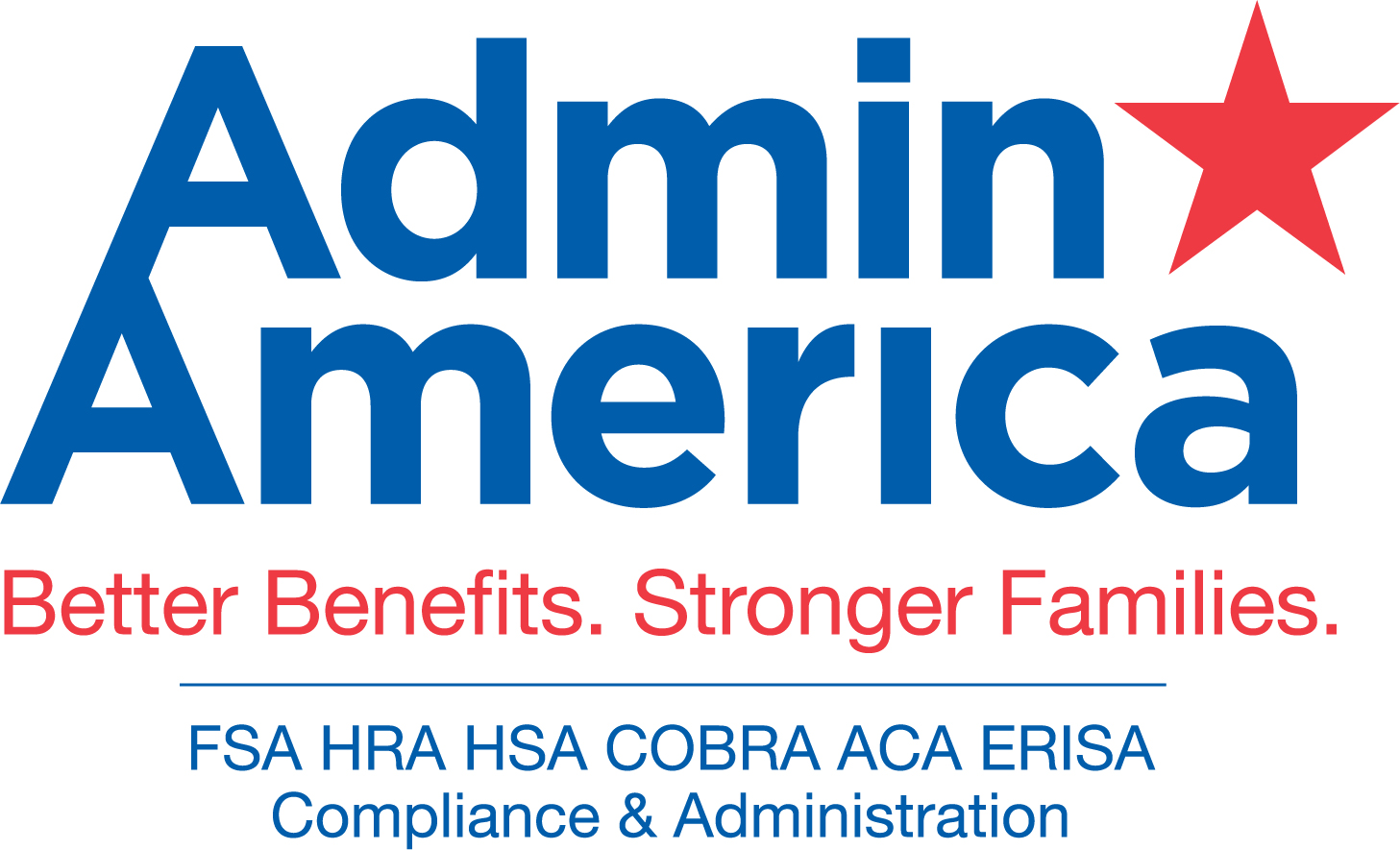EBSA Disaster Relief Notice 2024-01 provides extensions and relief from certain deadlines under the Consolidated Omnibus Budget Reconciliation Act (COBRA) and other benefit claims filing requirements for individuals affected by Hurricanes Helene and Milton. Issued by the Department of Labor’s Employee Benefits Security Administration (EBSA) on November 7, 2024, the notice aims to support participants, beneficiaries, and plan sponsors facing disruptions due to the recent hurricanes. The relief applies to individuals residing in FEMA-designated disaster areas impacted by Hurricanes Helene and Milton as well as employers located in those areas. The relief generally prevents the enforcement of impacted deadlines until May 1, 2025. The counties that are impacted by the announced relief are in Florida, Georgia, North Carolina, South Carolina and Virginia. Additional questions about the relief can be directed to trey@adminamerica.com.
COBRA Coverage and Premium Payment Extensions
Under COBRA, individuals have the right to continue their healthcare coverage after events such as termination of employment, with a strict deadline for electing this coverage and making necessary premium payments. Disaster Relief Notice 2024-01 extends these deadlines for individuals residing in FEMA-designated disaster areas. Affected individuals are granted additional time to elect COBRA continuation coverage and to pay premiums without the risk of coverage termination.
Typically, individuals have 60 days to elect COBRA continuation coverage after losing health benefits, followed by monthly premium payment deadlines. However, the notice extends these election and payment deadlines until May 1, 2025, allowing participants extra time for coverage decisions and ensuring they can maintain access to essential health services. For example, a person impacted by the hurricanes who missed a premium payment deadline will not face immediate coverage termination if the delay is within the extension period.
Extended Deadlines for Benefit Claims and Appeals
For benefit claims and appeals, Disaster Relief Notice 2024-01 also provides extended deadlines for health, disability, and other welfare and retirement benefit claims. Normally, participants must adhere to specific timelines for filing claims and appealing any denied claims. However, given the circumstances, the EBSA notice allows additional time for impacted individuals to file claims, receive reimbursements, and appeal denied benefits. This extended period applies to initial benefit claims as well as subsequent appeal processes, recognizing that disruptions caused by the hurricanes may prevent participants from promptly gathering and submitting the necessary documentation.
Plan participants and beneficiaries now have the extended period to complete these actions without forfeiting benefits. This applies to claims filed both for healthcare coverage and other welfare benefits, such as disability and life insurance, with deadlines also extended through May 1, 2025.
Administrative Flexibility for Plan Sponsors
The notice also provides relief to plan sponsors, administrators, and fiduciaries, enabling them to delay certain administrative tasks related to COBRA coverage and benefit claims. For example, if a plan sponsor faces difficulties issuing required notices or processing claims due to hurricane-related disruptions, the EBSA guidance allows flexibility, provided they make reasonable and good-faith efforts to meet these responsibilities as soon as feasible. This flexibility aims to relieve administrative burdens and reduce potential penalties for employers or plan sponsors affected by the disasters.
EBSA Disaster Relief Notice 2024-01 Affected Counties
Below is an alphabetical list of the impacted counties, organized by state (as of 11/14/24):
Florida: Alachua, Baker, Bay, Bradford, Brevard, Calhoun, Charlotte, Citrus, Clay, Collier, Columbia, DeSoto, Dixie, Duval, Escambia, Flagler, Franklin, Gadsden, Gilchrist, Glades, Gulf, Hamilton, Hardee, Hendry, Hernando, Highlands, Hillsborough, Holmes, Jackson, Jefferson, Lafayette, Lake, Lee, Leon, Levy, Liberty, Madison, Manatee, Marion, Monroe, Nassau, Okaloosa, Okeechobee, Orange, Osceola, Palm Beach, Pasco, Pinellas, Polk, Putnam, Santa Rosa, Sarasota, Seminole, St. Johns, St. Lucie, Sumter, Suwannee, Taylor, Union, Volusia, Wakulla, Walton, Washington
Georgia: Appling, Atkinson, Bacon, Ben Hill, Berrien, Brantley, Brooks, Bryan, Bulloch, Burke, Camden, Candler, Charlton, Chatham, Clinch, Coffee, Colquitt, Cook, Crisp, Decatur, Dodge, Echols, Effingham, Elbert, Emanuel, Evans, Fulton, Glynn, Grady, Hancock, Irwin, Jeff Davis, Jefferson, Jenkins, Johnson, Lanier, Laurens, Liberty, Long, Lowndes, McIntosh, Mitchell, Montgomery, Pierce, Rabun, Richmond, Screven, Tattnall, Telfair, Thomas, Tift, Toombs, Treutlen, Turner, Ware, Warren, Wayne, Wheeler, Wilcox, Worth
North Carolina: Alamance, Anson, Beaufort, Bertie, Bladen, Brunswick, Cabarrus, Camden, Carteret, Caswell, Chatham, Cherokee, Chowan, Columbus, Craven, Cumberland, Currituck, Dare, Davidson, Davie, Duplin, Durham, Edgecombe, Forsyth, Franklin, Gates, Graham, Granville, Greene, Guilford, Halifax, Harnett, Hertford, Hoke, Hyde, Iredell, Johnston, Jones, Lee, Lenoir, Martin, Mecklenburg, Montgomery, Moore, Nash, New Hanover, Northampton, Onslow, Orange, Pamlico, Pasquotank, Pender, Perquimans, Person, Pitt, Randolph, Richmond, Robeson, Rockingham, Rowan, Sampson, Scotland, Stanly, Stokes, Surry, Swain, Tyrrell, Union, Vance, Wake, Warren, Washington, Wayne, Wilson, Yadkin
South Carolina: Abbeville, Aiken, Allendale, Anderson, Bamberg, Barnwell, Beaufort, Berkeley, Calhoun, Charleston, Cherokee, Chester, Chesterfield, Clarendon, Colleton, Darlington, Dillon, Dorchester, Edgefield, Fairfield, Florence, Georgetown, Greenville, Greenwood, Hampton, Horry, Jasper, Kershaw, Lancaster, Laurens, Lee, Lexington, Marion, Marlboro, McCormick, Newberry, Oconee, Orangeburg, Pickens, Richland, Saluda, Spartanburg, Sumter, Union, Williamsburg, York
Virginia: Albemarle, Appomattox, Bedford, Bland, Botetourt, Buchanan, Buckingham, Carroll, Charlotte, Craig, Dickenson, Floyd, Giles, Grayson, Greene, Lee, Madison, Montgomery, Nelson, Patrick, Pittsylvania, Pulaski, Russell, Scott, Smyth, Tazewell, Washington, Wise, Wythe Independent Cities: Bristol, VA, Covington, VA, Danville, VA, Galax, VA, Norton, VA, Radford, VA, Roanoke, VA


